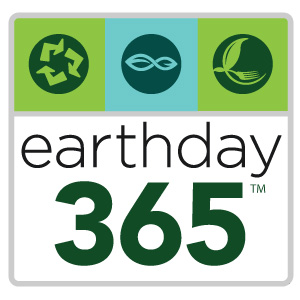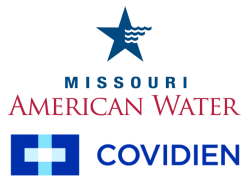Med take back important part of this year’s Festival.
The Recycling Extravaganza will accept your hard-to-recycle items 9 a.m. to 3 p.m. on April 22nd on the St. Louis Community College Forest Park campus parking lot off Oakland Ave. All are invited to load up their cars, trucks or bicycle baskets with any (or all) of the items that will be collected by one of a dozen partnering organizations or companies.
This year features the DEA Medication Take Back Initiative. The Drug Enforcement Administration will be on-site collecting expired, unwanted or unused Pharmaceutical Controlled Substances, prescription medications and over-the-counter (OTC) drugs. Collection is anonymous as no records are kept, and no identification is required.
In the U.S., more than 80 percent of adults take at least one medication per week, ranging from supplements and vitamins to prescription drugs, and often times leftover or expired medications are disposed of improperly – be it flushed down the toilet, thrown in the yard or dumped in the trash bin for pick up. These improper disposal practices can lead to environmental damage and health risks.
More than 250 million pounds of pills are flushed each year, which are incapable of being filtered out in sewage treatment plants and will likely end up back in the water supply. Additionally, many of the solid waste facilities that properly dispose of hazardous products will not accept pharmaceutical waste.
In 2008, a five-month Associated Press investigation determined that trace amounts of disposed pharmaceuticals are contained in our drinking water, possibly affecting both human health and aquatic life. However, flushing is still the FDA’s recommended disposal solution for some medications because the risk of unwanted ingestion is deemed greater than the potential impact on drinking water.
The FDA’s message for consumers is that immediate and permanent disposal is the best option for these pharmaceuticals. For drugs not on the list, the FDA recommends the federal guidelines for disposal, which includes mixing the drugs with an undesirable substance such as cat litter or coffee grounds. This makes the pills less appealing to someone who may find them mixed with other garbage.
In addition to protecting the waterways, animals and children from contact with medications, proper disposal of medications is important for many reasons:
- Diversion – Prescription medication abuse and/or theft are becoming more frequent, sometimes with fatal consequences. Getting it out of the medicine cabinet is the first step in prevention.
- Treatment Interference – Antibiotics can wreak havoc on your septic tank, resulting in untreated sewage passing into our natural water outlets.
- Expired pills – Pharmaceuticals have a shelf-life like most products and taking expired meds can be dangerous.
In September, Rep. Louise Slaughter, D-N.Y. introduced new legislation to Congress that would require pharmaceutical companies to set up a take-back program for leftover prescription drugs at no cost to the consumer. The Pharmaceutical Stewardship Act creates a nonprofit organization, financed by drug manufacturers, which would be responsible for establishing a comprehensive pharmaceutical collection programs in every state. Every county and city with more than 10,000 residents would be required to have a collection site for waste medications or, if a collection site is not feasible, a pre-paid mailer must be made available to those residents.
According to the bill, the nonprofit will publicize the take-back program to consumers, pharmacies and health care facilities through outreach materials, a toll-free hotline and a website. H.R. 2939 would also set up a commission that would develop a strategy to prevent pollution at all stages in a pharmaceutical’s lifecycle: from production to disposal.
We hope that you take advantage of this opportunity to participate in the DEA Take Back Initiative on April 22, 2012–ensuring the greater health of our drinking water, and reducing the risk of your left over or expired meds ending up somewhere unanticipated.
Sources/more information:
Federal Law Proposed for Unwanted Meds – http://earth911.com/news/2011/09/22/federal-take-back-law-proposed-for-unwanted-medications/
AP Investigates Pharmaceuticals in Drinking Water – http://earth911.com/news/2008/03/10/ap-investigates-pharmaceuticals-in-drinking-water/
DEA Pushes Nationwide Medication Disposal Event – http://earth911.com/news/2010/08/26/dea-pushes-nationwide-medication-recycling-event/
FDA Recommends Some Medicines Get Flushed – http://earth911.com/news/2009/11/05/fda-recommends-some-medicines-get-flushed/
Health facilities flush estimated 250M pounds of drugs a year – http://www.usatoday.com/news/health/2008-09-14-drugs-flush-water_N.htm
An AP Investigation: Pharmaceuticals Found in Drinking Water – http://hosted.ap.org/specials/interactives/pharmawater_site/
Pharmaceutical Stewardship Act – http://www.gpo.gov/fdsys/pkg/BILLS-112hr2939ih/pdf/BILLS-112hr2939ih.pdf



